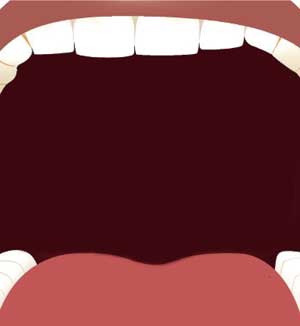Reply To:
Name - Reply Comment
By Haadiyah Marikar
Oral cancer appears as a growth or sore in the mouth that doesn’t go away and can be life-threatening if not treated in its early stages.

According to Assistant Secretary of the Sri Lanka Dental Association Dr. Vipula Wickramasinghe, oral cancer is the most common type of cancer found among Sri Lankan males. “ Among females it’s the 6th most common type. The main cause for this is chewing betel with arecanut and smoking tobacco. Other types of substances which people chew such as beeda and babul, commonly seen in highly populated areas in Colombo, can also cause oral cancer. Drinking alcohol is also one of the main causes, when people both drink and chew betel it aggravates their chances of getting oral cancer. There are also unknown factors that could cause this type of cancer, which are accountable to genetics. Although not seen in Sri Lanka, exposure to UV radiation can also be a cause” Dr. Wickramasinghe said.
He also said it mainly affected the middle-income group. It is seen mainly in people over 40 and is a common cancer among the middle-aged.”
Speaking of the awareness programmes and prevention methods conducted, Dr. Wickamasinghe said, “There is a separate institution called the National Cancer Control Programme in Sri Lanka. Since oral cancer is the most common cancer in Sri Lanka, they have conducted many programmes in order to mitigate it, one being opportunistic screening, where doctors or health professionals go to certain areas and screen people for other illnesses but in which you can see the scores for oral cancer’’.
‘‘The most important factor is detecting oral cancer in its early stages, which is the target of this programme. If identified in its early stages, it can be cured simply, or the condition can be reversed by preventing the habits that cause and aggravate it. Secondly, there’s a model called the risk factor model. All dental surgeons in the country have been educated and trained to screen patients according to it. Through this, patients are screened and redirected to the appropriate specialized unit. According to the scores the model gives, patients are redirected to specialized units. Thirdly, we are conducting a programme to change the ingredients in the bulath heppuwa. Betel is a traditional leaf in our country and we cannot expect people to stop taking betel altogether. Thus keeping the bulath heppuwa in mind, we are conducting a programme to replace harmful substances such as arecanut and tobacco. A cancer register has also been introduced, where if a cancer is found anywhere, it has to be registered. Through banners and leaflets, we conduct awareness programmes in order to identify oral cancers in their early stages by doing a self-mouth examination. To conduct such an examination one must open their mouth before a mirror, wipe it with their finger and look for any abnormal colour change or any abnormal growth or longstanding wounds. School programmes are being conducted to make students aware of oral cancer, mainly to prevent them from taking tobacco and arecanut.
We have expanded our services for cancer detection and early cancer treatment as well as late stage cancer treatment such as radiotherapy, surgery and chemotherapy, in surgery care institutions.We are in the process of making legislative changes on the importing of arecanut to Sri Lanka, because most of it is imported from Pakistan and other South Asian countries,” the expert opined.
Dr. Wickramasinghe further advised, “If a person is a betel chewer, they must stop as soon as possible. If you cannot stop at once, it needs to trail off because betel chewing with arecanut is the main cause for oral cancer in Sri Lanka.
Secondly, conduct self-mouth examinations and if you see any abnormalities in your mouth go to a hospital and consult a dental surgeon, as it must be detected in its early stages. Thirdly, maintain proper hygiene by brushing twice a day with proper toothpaste. Finally, visit the dentist once in six months.”